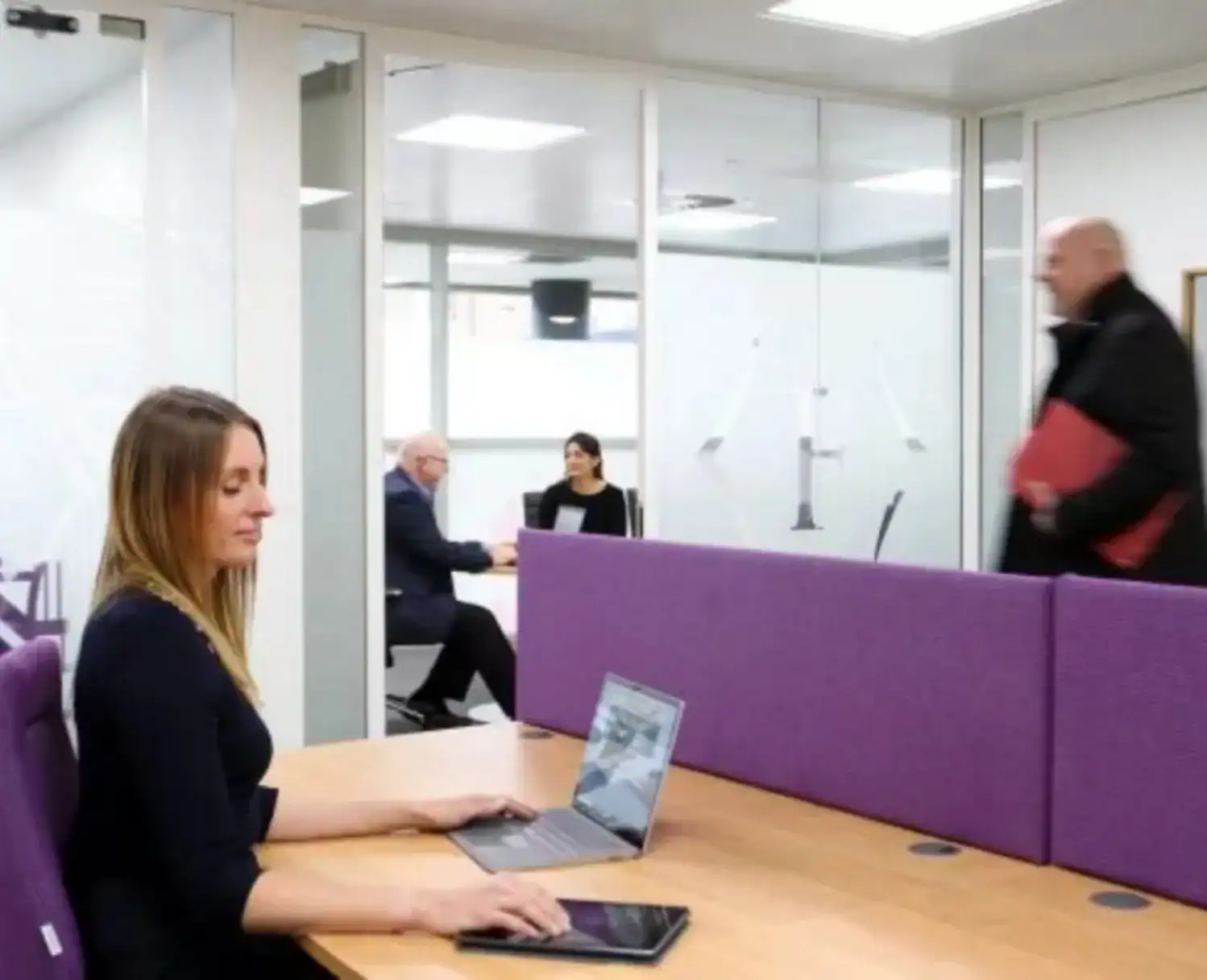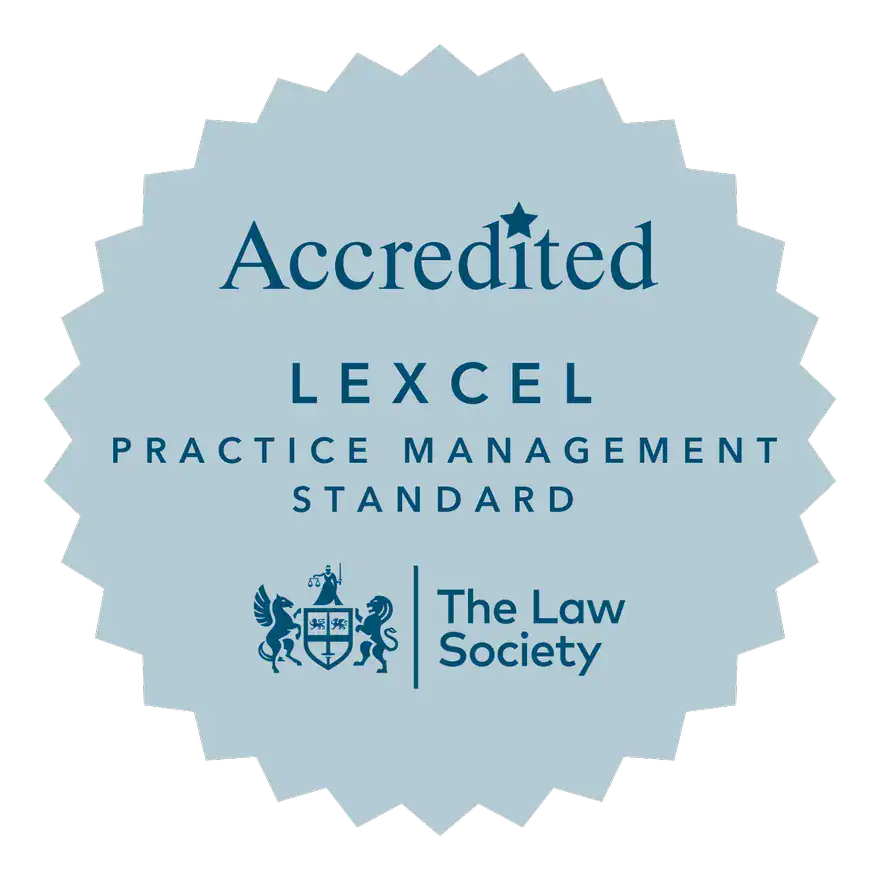What is the Together We Part service? We are often asked by couples who are separating whether they can both have the same solicitor.
Our Together We Part service allows you both to see the same solicitor to deal with the unresolved financial or children issues following your separation. It's a One Couple One Lawyer service, where one lawyer works for both of you to assist in reaching an agreement. We can help guide you through the issues where you need help, give you independent advice on the range of options available to you and assist with communication. This means that you and your former partner can reach agreement equipped with knowledge of what the law considers to be the options for a fair solution. We can also help you with that negotiation and refer you to a mediator if you require. Once you have reached agreement, we can make sure that it is incorporated into a binding court order that gives you certainty for the future. As part of this service, we can also:
- Help you obtain any expert reports you need, for example to value your pensions
- Refer you to a divorce coach or parenting coach, and/or advise on the use of a co-parenting app, particularly when communication between you and your former partner is sometimes difficult
Request a callback
What are the advantages of the Together We Part service?
We’re a specialist family law firm rated in the top 2% on Review Solicitors

It reduces conflict and stress
You will not get into “lawyer driven” conflict – where letters fly back and forth making matters worse. All reputable family solicitors will try and avoid unnecessary conflict – but with the best will in the world, the use of legal language and positional statements on both sides can create stress and misunderstandings.
The Together We Part service avoids all of that, and because you are both getting the same communications at the same time, it also avoids any misunderstandings.
It’s cheaper
By definition, paying one lawyer between you is cheaper than paying two, but the service also avoids the “back and forth” we talked about, and therefore cuts your costs even further. Avoiding contested court proceedings is the best way to cut your costs.
It’s quicker
Contested court proceedings can take months or years, and all documents and communications going through two sets of solicitors also slows everything down. The courts themselves are anxious for matters to be resolved without proceedings because of extensive delay, backlogs and cost.
How does the Together We Part service work?
We provide a free 20-minute telephone call so you can join together to find out more about the service and have a range of options explained to you.
If you then both decide you want to use the service to resolve your finance or children issues, we will meet you individually to assess your suitability.
The charge for this assessment will be £210 each including VAT.
If we do not consider that the case is suitable for the service, we will advise you of your options.
If we assess you as suitable and we all agree to move forward together then:
Stage 1
Will be establishing the issues. What are you already agreed on, and what are you not agreed on? We will also advise you of the general principles of the law at this stage.
Stage 2
Will be helping you to gather the evidence that you will need to make your decisions. In a finance case this will include full and frank disclosure of all assets.
This stage will include obtaining any experts reports (such as from a pensions actuary or accountant) on your joint behalf where these are necessary. This will be a simpler, cheaper process than in contested cases where it is not unusual to have protracted correspondence relating to agreeing an expert.
If your issues concern children, then we will discuss with you at this stage whether a referral to a co-parenting coach or the use of a co-parenting app is useful.
Stage 3
We will give you both advice together in meetings and in writing on the range of solutions that a court would be likely to order in your particular circumstances. As part of this we will advise you on your individual rights in law and point out any important aspects to take into account. However, as we will be advising both of you, we will not be able to advise you on which particular solution to adopt, or be involved in negotiations between you.
In complex cases, we may need to ask for your agreement to obtain a barrister’s opinion on your behalf to help advise you on the range of solutions or on particular aspects of the case. If we consider that to be necessary we will tell you and agree potential costs with you in advance.
Stage 4
Supplied with this advice you will then be able to negotiate with each other to arrive at the best solution. We can assist you in the negotiations if you wish by holding a joint meeting or meetings with you during which we can clarify issues, provide advice as to what may be achievable and facilitate a fair and balanced discussion based on your interests.
If required, we can also arrange for you to attend a meeting with a third party such as a mediator who can facilitate the negotiations.
If you then reach agreement and the matter concerns finances, we can arrange for the agreement to be incorporated in a consent order approved by the court. This is a quick process in most cases and ensures that the agreement is binding for the future.
In relation to children, the court has a policy of not making any order where matters are agreed, but we can assist you to record accurately any agreement reached.
What does the Together We Part service cost?
The initial assessment will cost £175 plus VAT at 20% (£210) each.
Thereafter, we will agree a payment arrangement with you stage by stage. This will be on hourly rates. If at any point you decide not to go to the next stage, you will only need to pay for the work or stages completed so far as well as any disbursements incurred.
Any barrister’s costs and the costs of any reports obtained are separate and will be fixed amounts agreed with you and payable in advance.
One Couple One Lawyer divorce is typically cheaper than paying for separate lawyers.
Here to help
Is the Together We Part service suitable for me and my ex-partner?
The case will need to pass the suitability assessment as set out above. We will also require that both of you sign up to the following code of behaviour:
What if my ex and I have already reached agreement on finances and just want a lawyer to get a court order?
If you have already reached an agreement before you come to us, then (provided you pass the initial assessment) once we have had a preliminary meeting with you both together, we can go straight to the point of obtaining a consent order on your behalf. We would need to be satisfied that the agreement is likely to be approved by the court as fair, and in some cases we may consider it necessary and in your best interests for you to obtain further evidence first (for example a pensions report) if we are to proceed.
What is the difference between the Together We Part service and mediation?
Whilst a mediator can give information, they cannot provide advice. The “Together We Part” process allows you to receive tailored legal advice on your own circumstances from the same lawyer. We can also obtain experts reports on your behalf; this cannot be done as part of mediation. You can then negotiate with the benefit of that advice and information.
These negotiations can include mediation at that point. In some cases, particularly where there no real legal issues at stake or need for experts reports it might be more appropriate for you to go straight to mediation. If we think that applies in your case, we will tell you so- we will always advise you of your best interests rather than try and “sell you” any particular service.
Download our PDF guide – What is the Together We Part service?
Find a solicitor that understands your own situation

Our reviews







